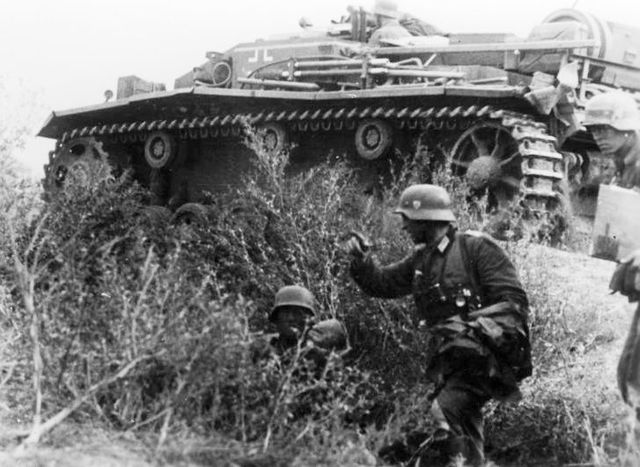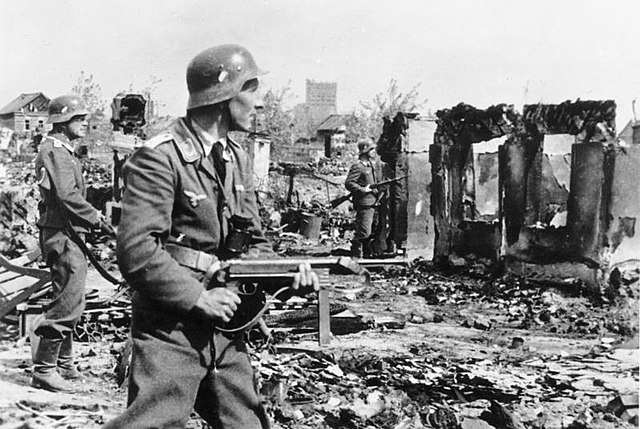Hiwi, the German abbreviation of the word Hilfswilliger or, in English, auxiliary volunteer, designated, during World War II, a member of different kinds of voluntary auxiliary forces made up of recruits indigenous to the territories of Eastern Europe occupied by Nazi Germany. Adolf Hitler reluctantly agreed to allow recruitment of Soviet citizens in the Rear Areas during Operation Barbarossa. In a short period of time, many of them were moved to combat units.
Russia, January 1942, two former Soviet soldiers in the German Wehrmacht army, decorated with the General Assault Badge
SS Trawniki men before the corpses of Jews in the doorway of the Warsaw Ghetto. Photo from Jürgen Stroop Report, May 1943.
A captain inspecting auxiliary Eastern troops of the Wehrmacht in Greece, 1943.
The Battle of Stalingrad occurred on the Eastern Front of World War II, beginning when Nazi Germany and its Axis allies attacked and became locked in a protracted struggle with the Soviet Union for control over the Soviet city of Stalingrad in what is now southern Russia. The battle was characterized by fierce close-quarters combat and direct assaults on civilians in aerial raids; the battle epitomized urban warfare and is recorded as the single largest and costliest urban battle in military history. It was the bloodiest and fiercest battle of the entirety of World War II—and arguably in all of human history—as both sides suffered tremendous casualties amidst ferocious fighting in and around the city. Today, the Battle of Stalingrad is commonly regarded as the turning point in the European theatre of World War II, as Germany's Oberkommando der Wehrmacht was forced to withdraw a considerable amount of military forces from other regions to replace losses on the Eastern Front. By the time the hostilities ended, the German 6th Army and 4th Panzer Army had been destroyed and Army Group B was routed. The Soviets' victory at Stalingrad shifted the Eastern Front's balance of power in their favour, while also boosting the morale of the Red Army.

German and Romanian command personnel consult in a field position near the Don River, August 1942.
German infantry and a supporting StuG III assault gun during the battle
Smoke over the city center after aerial bombing by the German Luftwaffe on the central station
German soldiers clearing the streets in Stalingrad







